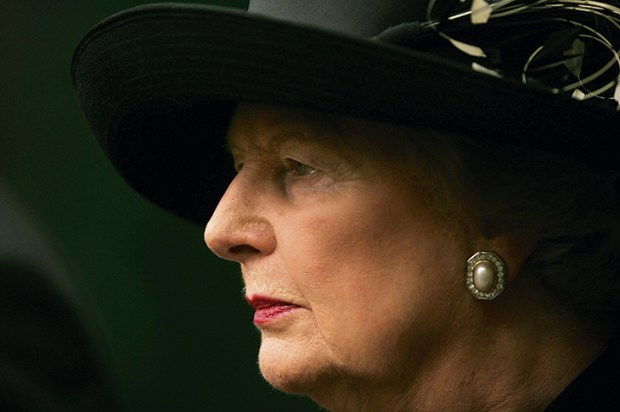Zadie Smith’s first collection of short stories shows that she can pack all the astute social commentary of her novels just as deftly into the short form. A case in point is ‘Sentimental Education’, a comic homage to Flaubert featuring a decidedly unsentimental protagonist, Monica. Middle-aged (‘Next stop menopause and no more denim’) and feeling hypocritical as she chides her children for bad behaviour, Monica remembers the way she once objectified men as if it were her degree subject. Of her university boyfriend, Darryl, she recalls: ‘Adorable cock, nothing too dramatic, suitable for many situations.’ They worked hard on writing their theses, even harder on finding her G-spot. Later she callously dumped and betrayed him.
Smith explores racism, sexism and class with a light touch. Monica tries to upend the linguistic misogyny of laddish chat with her own vulgarity but ‘it was the Nineties, the language was not on her side. You didn’t “release” men, they “pulled out”. They were the subject.’ ‘In a matriarchy,’ Monica continues, ‘you’d hear women boasting to their mates [… ] I really made his penis disappear. I just stole it away and hid it deep inside myself until he didn’t even exist.’ The tone switches abruptly from grave to absurd. Characters discuss cultural values with the affectation of puffed-up undergraduates, yet after their pomposity is skewered they don’t fall flat like undone theories but live on as fully formed characters.
Across 19 stories, set between Smith’s two hometowns of London and New York, women take centre stage. Men are always leaving them to raise children alone, or obstructing their potential when they stay. In ‘Big Week’, a heroin-addicted protagonist would be horrified to learn that his bored ex-wife wanted out long before the drugs gave her the excuse she needed. In the lively ‘Miss Adele Amidst The Corsets’ the eponymous cross-dressing curmudgeon is outraged by the way women are beholden to men: ‘You’re the one with the life force… run, baby, run!’
Politics, too, comes under Smith’s blistering gaze. In ‘The Lazy River’ the cheap, fake thrills of a water park are a metaphor for the social media artifice that keeps holidaying Brexiteers in blissful ignorance. She also addresses the way millennials use technology, curating their lives so aggressively there’s no room for their selves to evolve: ‘No backstage to any of them — only front of house.’
Some stories are just a few pages, and several — such as ‘Mood’, or ‘Words and Music’ — are wildly experimental. Multiple points of view, sometimes, leave characters flailing about in search of a plot. But even when Smith doesn’t quite succeed, her efforts to push the boundaries are tremendous.
Some of these stories, too, have the flavour of essay or memoir. Smith writes ambivalently about America. ‘Downtown’ lovingly evokes the city’s creative buzz. Yet elsewhere: ‘America is the kind of bitch who turns anyone who truly cares about Her into a crazy person.’ It is to Britain that she returns in the final story, ‘Grand Union’, where a narrator with many apparent similarities to Smith finds the ghost of her mother, with whom she squats in Ladbroke Grove eating chicken.
This bold and tender book leaves us with the feeling that Smith, like her characters, is still searching for her own identity.
Your Duck is My Duck, the latest collection from Deborah Eisenberg, a seasoned short story writer, is also set largely in New York. Here are six spiky critiques of social mores. The stories are not overtly political but they have an acute sense of panic. ‘I’m hurtling through time, strapped to an explosive device, my life. Plus, it’s beginning to look like a photo finish, me first or the rest of the world,’ says the narrator in the title story.
The past is a source of discomfort. In ‘Cross Off’ and ‘Move On’, bitter mothers rehearse their existential discontent on their daughters. In ‘Taj Mahal’, former film stars gather to express outrage at a sensational book written by the grandson of their late friend Anton. None of them remembers the grandson, and all are convinced his recollections are inaccurate — but their own memories don’t align either. Still, one of them declares with unnerving confidence: ‘The point of the past is that it’s immutable.’
Is it? Eisenberg is preoccupied with her narrators’ misconceptions — with our tendency to misread others. These blind spots make the future, rather than the past, immutable. In ‘Merge’, a young couple are incap-able of changing one another as they would like. Is this simply a question of language being less powerful than we imagine, or is everything preordained anyway?
These stories take their time, draw us in to their claustrophobic little worlds, and savour language and humanity, in all their muddled, inadequate glory.
Got something to add? Join the discussion and comment below.
Get 10 issues for just $10
Subscribe to The Spectator Australia today for the next 10 magazine issues, plus full online access, for just $10.
You might disagree with half of it, but you’ll enjoy reading all of it. Try your first month for free, then just $2 a week for the remainder of your first year.














Comments
Don't miss out
Join the conversation with other Spectator Australia readers. Subscribe to leave a comment.
SUBSCRIBEAlready a subscriber? Log in